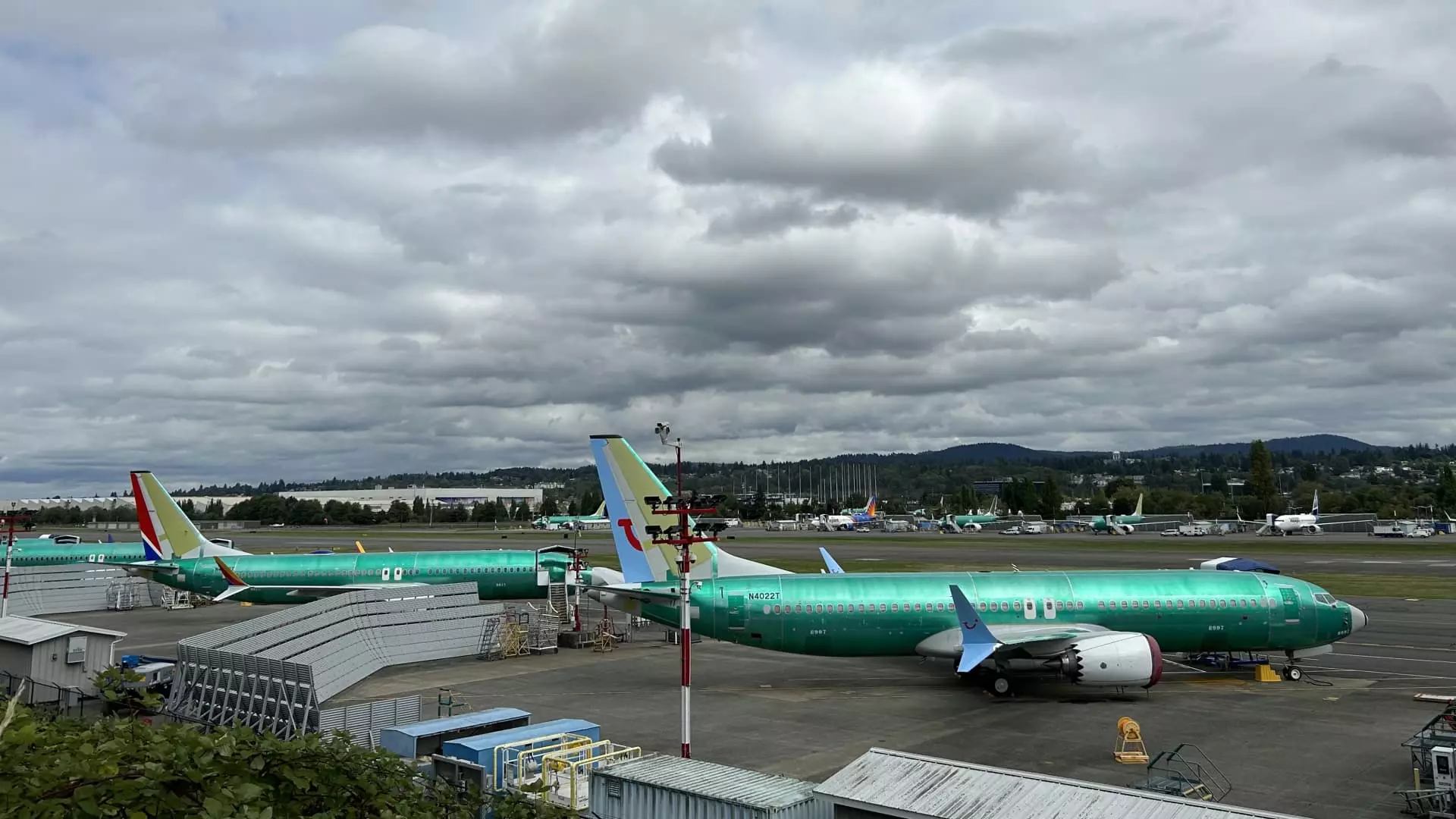In 2024, Boeing experienced a tumultuous period, delivering only 348 aircraft—a staggering decrease of approximately 33% compared to the previous year. This decline highlights serious operational challenges faced by the aviation giant, the most significant being a midair incident involving a door panel blowout. Coupled with a machinist strike that took place in the fall, which temporarily halted production lines, Boeing found itself struggling to keep pace with industry demands.
As the aviation market rebounds, Boeing’s struggles placed it at a competitive disadvantage, particularly in relation to its primary rival, Airbus. While Boeing’s delivery totals fell sharply, Airbus managed to achieve a remarkable 766 aircraft deliveries, the best performance by the European manufacturer since 2019. Both companies, however, grappled with persistent supply chain issues that have adversely affected production schedules and the fulfillment of extensive backlogs. Despite these obstacles, Airbus’s ability to maintain higher delivery numbers intensified the scrutiny on Boeing’s operational efficiencies and strategic choices.
Aircraft deliveries remain a crucial aspect of the aviation industry, not merely for operational metrics but because they signify when customers complete substantial financial transactions. For manufacturers like Boeing, fulfillment of delayed orders is vital for revenue recovery. The end of the eight-week machinist strike in December allowed Boeing to resume deliveries, with 30 jets, notably the 737 Max, reaching customers before the year closed. Yet, the lingering effects of the operational setbacks were evident in delayed shipments, which led to an increase in aircraft leasing rates, a trend that aviation analysts expect to escalate further throughout 2024.
Despite the delivery challenges, Boeing recognized significant interest from clients, noting 142 gross orders in December alone. Among these orders were significant commitments from Pegasus Airlines for 100 737 Max aircraft and flydubai for 30 787 planes, agreements first hinted at during the Dubai Air Show in late 2023. Conversely, Boeing also had to adjust its numbers, removing over 130 orders that were attached to the now-defunct Jet Airways of India, which underscores the sector’s volatility.
Future Prospects and Investor Relations
For the fiscal year, Boeing announced a total of 569 gross orders while netting 377 adjustments—307 of which were factored in after accounting modifications. In contrast, Airbus reported 878 gross orders and 826 net orders for the same period, creating a significant gap in the competitive landscape. Looking forward, attention turns toward Boeing’s leadership and their plans for production ramp-up and strategic recovery. As CEO Kelly Ortberg and his team prepare to engage with investors on January 28, the focus will be on how Boeing intends to restore its performance and profitability in an increasingly challenging aerospace environment.
While Boeing faced considerable hurdles in 2024, the company is eager to leverage renewed order interest to reclaim its position in the aviation sector, demonstrating resilience as it navigates through operational complexities.

